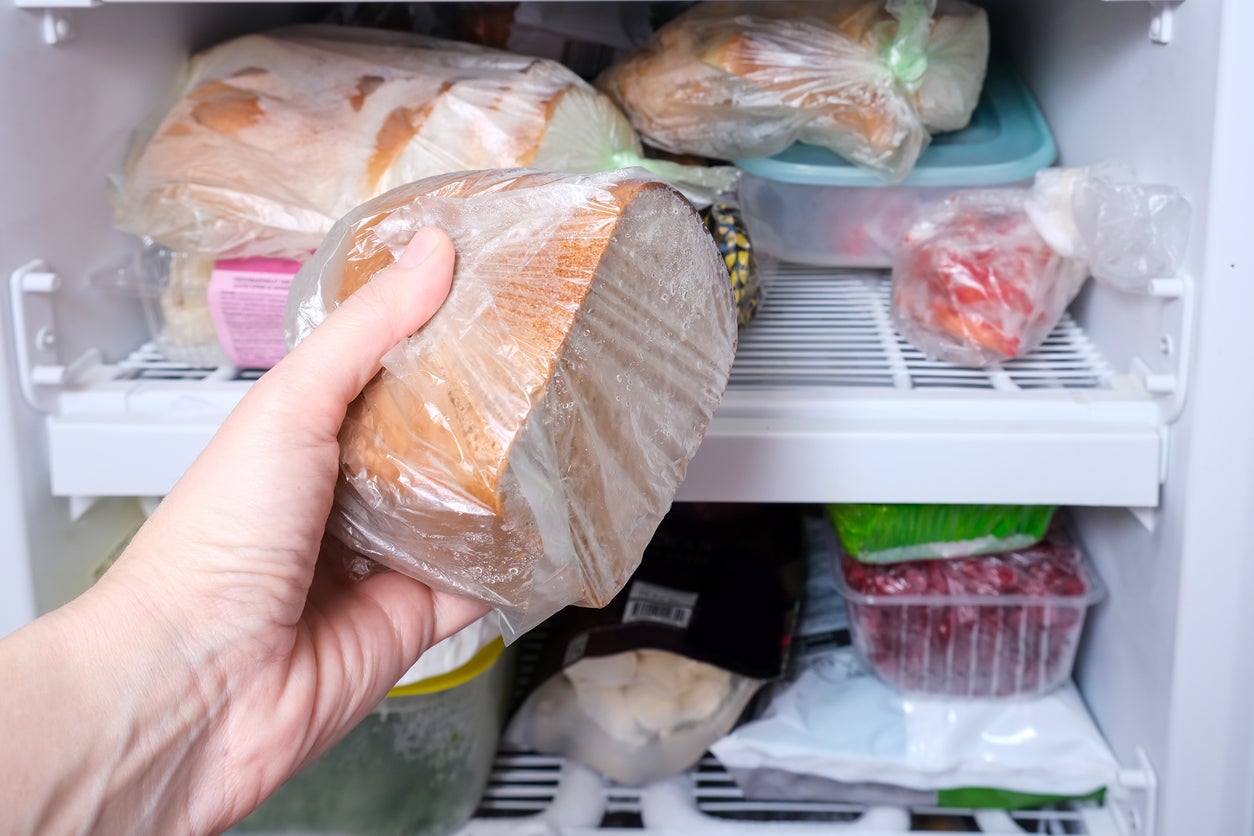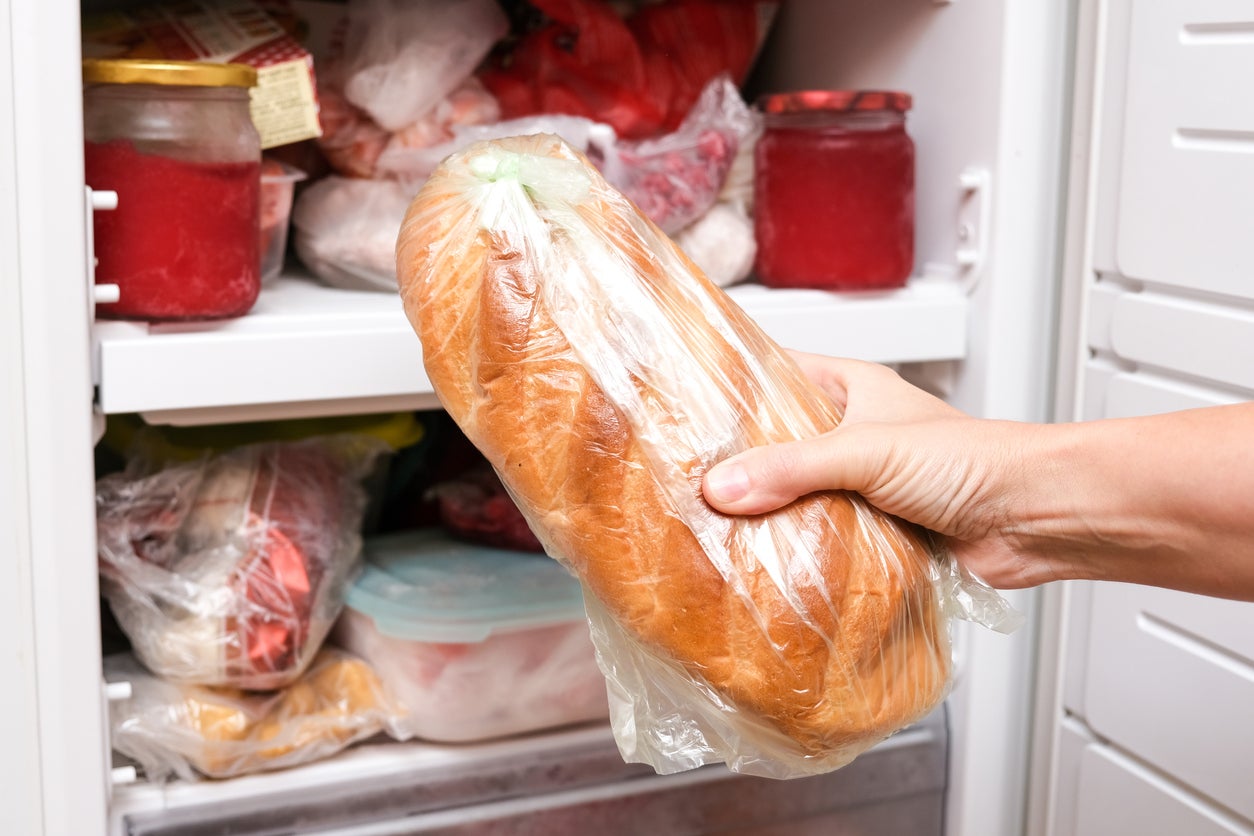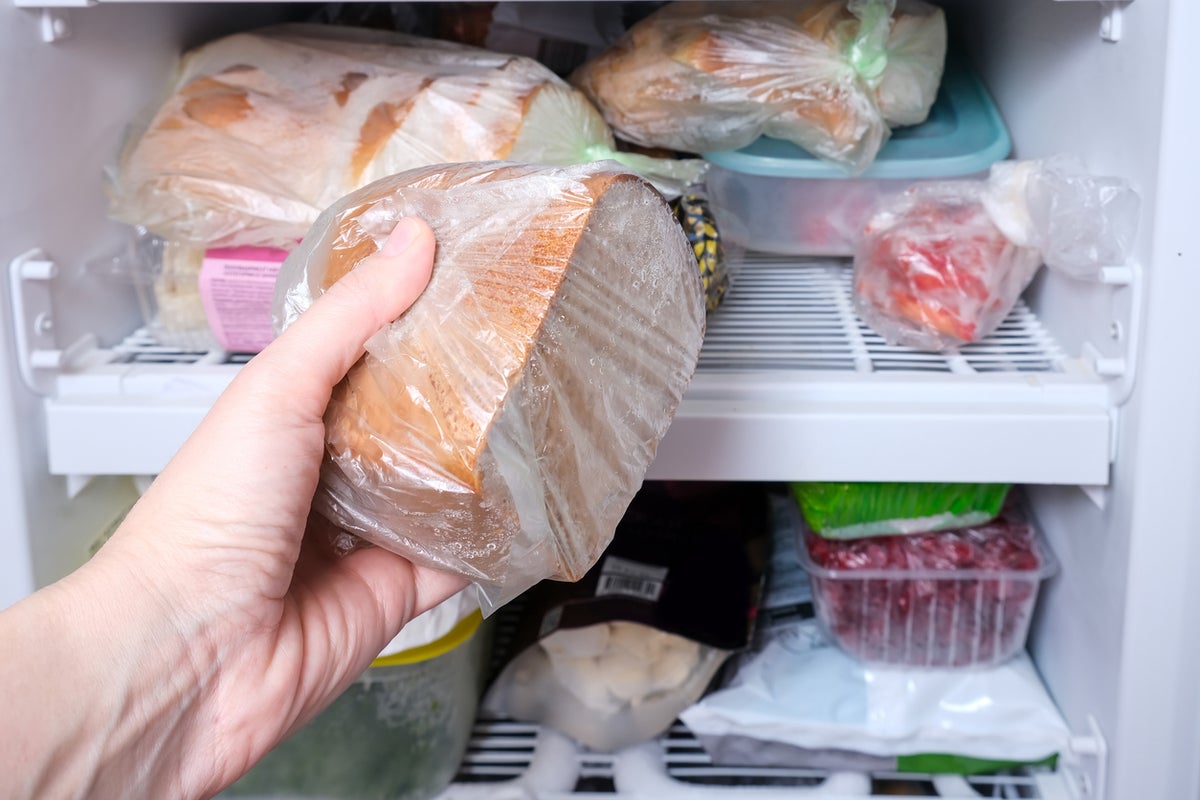After buying bread from your local market, your first instinct may be to put it in the pantry. However, social media has led more and more people to store their bread in the freezer before eating — but not for the sake of keeping it fresher longer.
On TikTok, a range of medical professionals and influencers are arguing that freezing your bread before eating it could improve your physical health. In one such clip shared in August, Dr. Tania Elliott, an internal medicine specialist and allergist, claimed that freezing your bread not only keeps your energy “steady,” but also helps you “avoid big sugar spikes and crashes.” She also says the food hack is “better for your body, especially if you’re trying to lose weight.”
While freezing your bread doesn’t guarantee weight loss, an increasing amount of evidence suggests this trend makes bread better for you.
Joseph Salhab, a gastroenterologist in Florida, explains to The Independent that freezing bread changes its starch structure, creating resistant starch that isn’t fully digested in the small intestine.
“Instead, it passes into the colon where it feeds healthy gut bacteria and produces anti-inflammatory compounds,” he says. “Because it’s digested more slowly, the sugars from the bread are absorbed more steadily over the day, and some people even notice it feels gentler on their digestion and may reduce bloating compared with eating regular bread.”

Salhab agrees that this digestion process means the resistant starch behaves like fiber — a nutrient that’s beneficial to your digestive system and relieves constipation.
Similar to fiber, resistant starch produces short-chain fatty acids, which are anti-inflammatory and can “strengthen the gut lining, and may support overall metabolic and immune health.”
Auset Shridevi, a California-based chef with more than 20 years of experience, also notes that the starch present in bread before freezing is just a long sugar molecule. And if we eat that too often, it can result in diabetes and weight gain.
Eating the resistant starch in bread not only supports your gut health but also helps you feel full more quickly.
“I don’t think freezing and toasting bread directly freezes calories very much, but all the health benefits combined should help reduce calories consumed, and reduce calories absorbed,” Shridevi tells The Independent.
“For example, the starch isn’t easily absorbed into the blood, which lowers blood sugar and glycemic index.”
There have been various studies on the benefits of freezing bread over the years. A 2008 study in the European Journal of Clinical Nutrition tested bread in four ways: fresh, frozen, toasted, and frozen-then-toasted. Results found that healthy participants who had frozen-then-toasted bread had lower blood sugar levels. In fact, their glucose response dropped by as much as 40 percent when compared with participants who ate fresh bread.

But how long do you need to freeze your bread before toasting to benefit your gut? Salhab says that while freezing bread can turn its starch into resistant starch, it’s best to keep it in the freezer overnight.
However, as the bible preaches, it’s important to remember that “Man shall not live by bread alone.”
“Some people, especially those who watch their carbohydrate intake, may notice more steady energy after meals, but freezing bread alone won’t replace the benefits of a diet rich in whole grains, fruits, and vegetables,” Salhab warns.
Although research on freezing bread has existed for years, it’s only recently gained popularity on social media due to the focus on gut health and fiber. However, Shridevi cautions us to be wary of misinformation and exaggerated claims about food and exercise.
“A simple health hack like this sounds too good to be true at first,” she says. “It had to break through the Internet background noise for people to finally catch on and take notice.”



